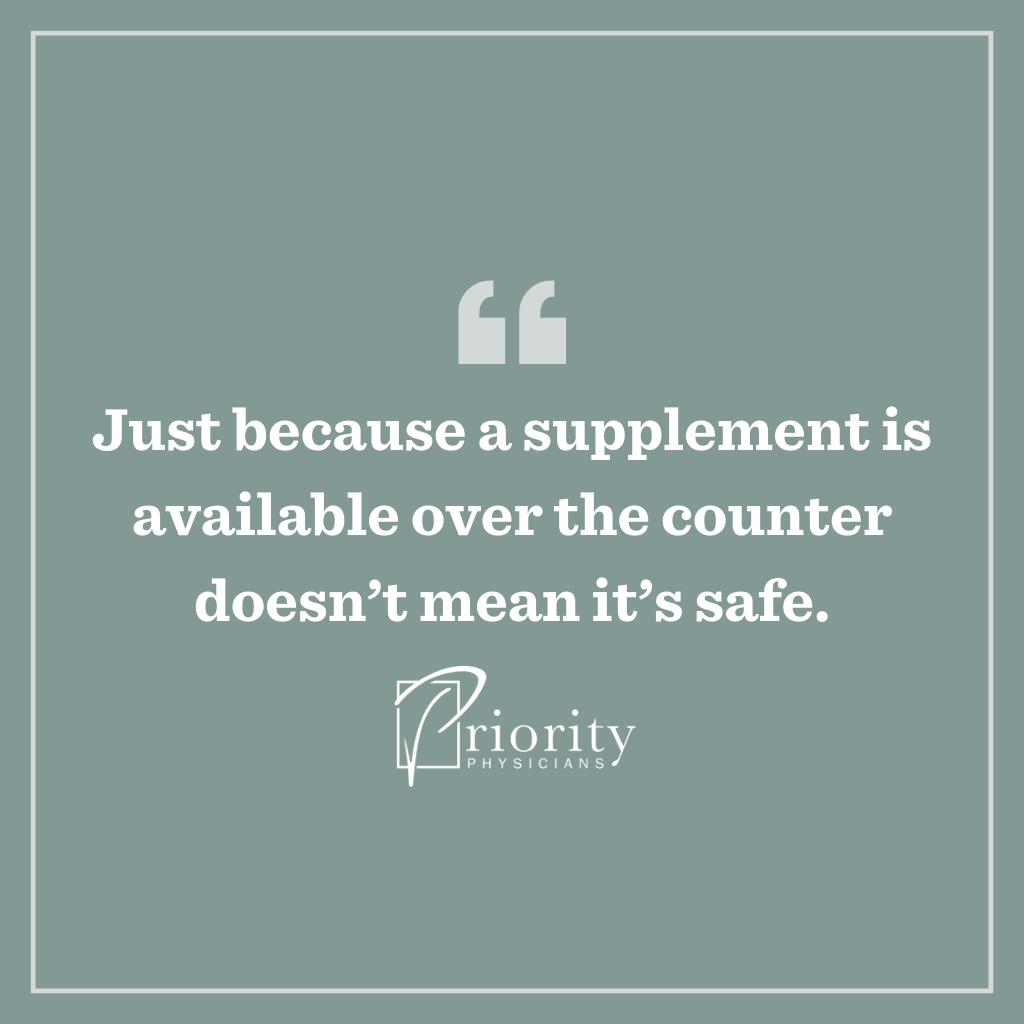Do you take one or two dietary supplements every day? So do about half of all American adults. These manufactured pills, capsules, tablets, powders, and liquids aim to remedy nutritional gaps or deficiencies in your diet.
Many people take them because they’re convinced the supplements will make them healthier. But do supplements actually work? Do you know how to choose good supplements? Are any of them potentially harmful?
Supplements Aren’t Regulated
Prescription medications require strict testing and a stamp of approval from the Food and Drug Administration (FDA). Supplements do not.
The supplement market is, in fact, completely unregulated.
In the U.S., no governmental body or lab oversees or tests most supplements. A supplement manufacturer can simply claim on a label that a product contains a particular ingredient or additive with zero proof. And if specific components do exist in the product, the manufacturer can also claim they have unconfirmed — even untested — benefits.
These claims are virtually impossible to verify, and the supplement market isn’t required to do so. Someone could literally bottle dirt from their yard and sell it as an immune-boosting wonder-powder.
Many manufacturers even use the lack of FDA approval as a marketing strategy, hinting that “the government doesn’t want you to know” what’s in the supplement (as if the alleged “benefits” are top secret).

Supplements Can Have Unpredictable Side Effects
Wondering how to choose good supplements? If you’re thinking of taking a particular supplement, start by asking yourself:
- Does the supplement contain what the label claims it contains?
- If it does, will those ingredients benefit me?
- Most critically, could those ingredients potentially harm me?
Taking supplements your body doesn’t actually need may expose you to chemicals or untested substances that could adversely affect your health. Unnecessary supplements can distort your lab results and interfere with medications or even other supplements you’re taking.
Furthermore, just because a supplement is available over the counter doesn’t mean it’s safe. For instance, ingesting too many fat-soluble vitamins (vitamins A, D, E, or K) can have negative effects — they’re stored in the liver and fatty tissues and eliminated from the body slower than water-soluble vitamins.
Also, be careful about the number of supplements you consume. Taking five or more may have a negative effect on your health.
It’s especially important to be careful with inexpensive and low-quality supplements, which may contain unknown or unlisted ingredients, contaminants, and toxins. (For example, CBD products often originate from hemp grown in unsafe soil conditions outside the U.S.)
Don’t throw money away on products from disreputable marketers that frequently don’t contain what’s claimed.

How to Choose Good Supplements
So, how do you choose good supplements? For confidence and trust in product labels:
- Purchase supplements from a reputable source. Buy directly from major retailers that value their reputation rather than through independent sellers on Amazon.
- Check resources from NSF or USP, respected and trusted scientific groups that verify ingredients and rigorously test supplements for contaminants.
- Talk to your physician about what you’re taking and how it might interact with your medications or other supplements. Ask your doctor for recommendations on safe, effective supplements that deserve a place in your health regimen.
Trust Us for Informed Advice
News and entertainment media often hype certain new supplements, and the publicity typically generates a wave of questions from our patients. Miracle cure-alls, such as “anti-aging” supplements, are guaranteed attention-grabbers. Suddenly, they’re available everywhere, and patients want to know more about them.
Your Priority Physicians are here to sift through confusion about these products. We value your outreach and respect your questions. We’ll give you solid advice on whether a particular supplement might benefit you or your family.
Reach out before spending money on products that sound too good to be true — and often are.

